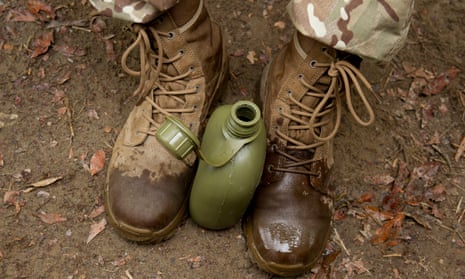The SAS is reportedly considering changes to its notoriously difficult entry tests to ensure women have a fair chance of making the grade.
All applicants to the special forces must complete an initial fitness test before they are considered further. The tasks, which involve various long marches over mountainous terrain while carrying heavy rucksacks, are understood to be prohibitive to women and inessential to selecting candidates with the attributes required to succeed in the SAS.
The government said it wanted to see all close combat units in the British military open to women by 2019. Last year, then-prime minister David Cameron announced he was removing a ban on women in close combat roles, upending hundreds of years of tradition.
Ben Macintyre, author of SAS: Rogue Heroes, criticised the one-dimensional view of muscular SAS soldiers operating behind enemy lines.
The original, wartime SAS was a very different creature, he told the Times. “They weren’t macho figures; they were mentally resilient, tough as blazes. Not the he-men that we associate with the SAS today.”
“[David] Sterling [the founder of the SAS] was looking for very specific qualities in his recruits,” he said. “He wanted people that were tough. He listed the qualities that he wanted. Key among them were intelligence, character, camaraderie and an ability to muck in.”
It was reported that female recruits could be allowed to carry lighter loads and given more time to complete the treks.
The current selection process is six months long and one of the toughest in the world. The pass rate can be as low as 8% a year.
It starts with the hills stage, a set of gradually more difficult marches through the Welsh countryside. Weight is added to the backpacks of the marine hopefuls as the week goes on. The final 40-mile march must be completed within 20 hours.
Those who complete the test go on to undertake jungle exercises in Belize and interrogation exams elsewhere.
The Ministry of Defence refused to comment.
